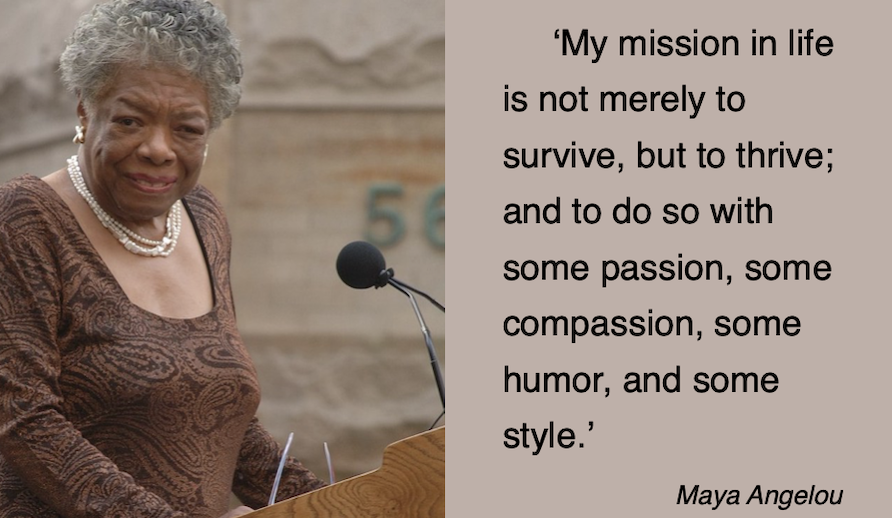By Curt Collier

As an ethical biocentrist, I hold certain scientific theories as axiomatic. First, that all of being strives to meet certain requirements to maintain a stable existence, including chiefly the need for food (nutrients), water, safety, and shelter. We call these needs homeostatic, and these needs constitute a powerful drive in life. Second, that beings desire not only to exist, but to grow and flourish–to thrive–another deep “goal-directed” impulse, sometimes disputed, called teleonomy in biology. Chief among these impulses is our desire to mate and reproduce, but such goal-directed drives pushed humans to adapt to different environments and to “build” niches. Finally, I hold it as axiomatic that our particular species, homo sapiens, shaped by natural selection, strives to accomplish the above through interdependence with other forms of life, especially our own kind. We need others. We need their touch. The first juncture of thinking as an ethical biocentrist is to recognize that we are biologically driven, the result of millenniums of evolutionary forces. We are natural beings responding to natural rhythms, and awareness of this is crucial in ethical decision-making.

The second thing I believe as an ethical biocentrist is that in order for humans to survive, we relied heavily on our species’ pattern-seeking capability, which allowed us to make certain predictions and, as importantly, to use a variety of formats to communicate that information to others. These turned out to be profoundly useful skills. To communicate patterns, say, that certain external conditions meant that a predator was approaching or that this plant makes you ill had immense ramifications for our survival. The challenge for our species was how to convey increasingly complex information to our kin. A theory originally proposed by evolutionary biologist Richard Dawkins is that through memetics, transmission of small bits of relevant information, our species not only survived but flourished, and that this process helped lead to the development of culture. While memetics has come a long way since Dawkins’ original formulation, one only needs to visit ancient sites such as the caves of Lascaux to see with what reverence our ancestors treasured this ability.
The challenge of sifting truth from opinion
The problem with transmitting information to others is that there is no way of determining whether this information is true, rather than simply a perception, and correctly tied to reality. As human culture became increasingly complex, the nature of communication did, as well, and speculation often drifted into established “wisdom.” Humans have devised all kinds of methods to help determine what is “true,” including philosophy, logic, science, and math, but these tools themselves are complicated and not immune from accepting–sometimes as revealed truth–what is often really no more than opinion. (Although I hold out that over time these tools can strip away their own bias, it is turning out to be a lengthy process.)
We often value opinions over reality
An example of this was when Charles Darwin published “On the Origin of Species.” This brilliant book laid out a better understanding of the world (which many of us believe is closer to the nature of reality), but it profoundly challenged the accepted wisdom of the day and the culture that relied on those opinions. Theology, governments, economies, and even the scientific community contested the findings of Darwin’s book, a debate that still rages in the minds of some. This points out many things about humans, but I think the one thing it does clearly demonstrate is that we will hold on to a variety of opinions even when reality says something completely different. No shocker to the reader of this column, I’m sure. However, there is a major reason we do hold onto erroneous or outdated ideas.
How hard should we try to set the record straight?
My question is to what extent should any of us push to set the record straight? People believe all kinds of curious things, no doubt including myself. While the philosopher and scientist in me believes it’s worth separating fact from fiction, the ethical biocentrist in me wonders to what extent that is worth a lot of time? Humans believe all kinds of crazy things even when those ideas are detrimental to our own survival, such as dropping bombs can lead to peace, short-term financial gain is better for us all than long-term planetary sustainability, that being anti-abortion is to be pro-life, that marriage is only between those without the same genitals, that you can change human sexuality just by reading a book, and so on and so on.
Individual flourishing is intertwined with others’ success
I would argue that a better use of my time is focusing less on the struggle over ideas and more on the underlying forces that drive us to hold these ideas. People hold closest to beliefs–even if nothing more than magical thinking or counterintuitive to reality–that seem to support their homeostatic and teleonomic goals. As an ethical biocentrist, I know that all forms of beings need healthy and sustainable places to live, clean air and water, access to wholesome food, but also the freedom to choose the life we want to live. I want to provide the tools to help others thrive, grow, and prosper that work in harmony with the rest of being and protect our planet. So, as an ethical biocentrist, I advocate that we start there–by affirming the worth and dignity of being, which means we begin by paying attention to how others work to exist and thrive and aiding that process. Our second task is to help others understand that our individual success is dependent upon building reciprocal and interdependent systems with others, including all forms of life. But in my experience, you’re better off demonstrating that than simply advocating for it. Experience tied to reality is a better teacher than opinion tied to common belief.
‘Not merely to survive, but to thrive’
Finally, I want to underscore our third biological need, which is for healthy relationships. I’ve not found who originally said, “we can survive on our own, but not thrive on our own.” (If you find the source, let me know…. I heard it from Neil deGrasse Tyson.) While there are several versions of this quote, I like the one by Maya Angelou: “My mission in life is not merely to survive, but to thrive; and to do so with some passion, some compassion, some humor, and some style.” We can build a life for ourselves. We can do so using a variety of methods that also allow others to do the same. We can even grow and flourish while simultaneously helping others–all forms of being–thrive, as well. This is within our biological and technological capacity. But ultimately, that success is contingent on whether we work toward reciprocity and interdependence and create the same conditions for others. And in fact–I state here–that all the really good stuff in life is found in such a process.
Curt Collier is leader of the Ethical Culture Society of Bergen County.


